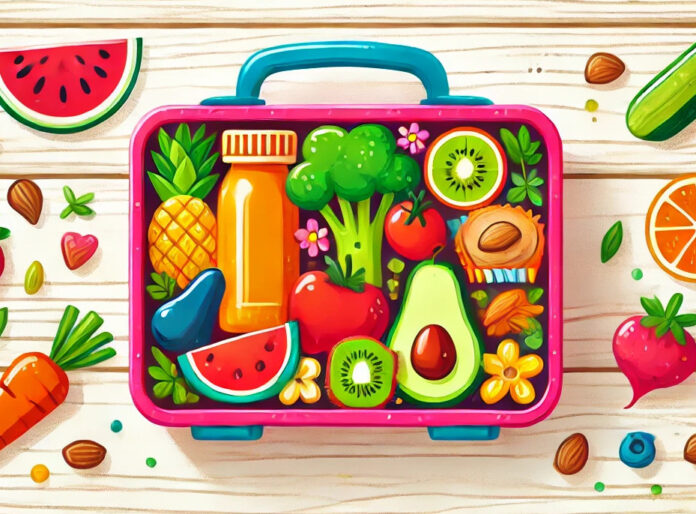Attention-Deficit/Hyperactivity Disorder (ADHD) can feel like a whirlwind—especially when trying to help a child manage their symptoms. While therapy and medication are often the front-line treatments, there’s growing interest in how diet might influence behavior. Can what we feed our kids really help—or hurt—their ability to focus, stay calm, and manage their emotions?
We’ve all seen it: a child downing a sugary snack, only to transform into a bouncing, fidgety tornado moments later. It’s enough to make anyone question whether food plays a larger role in ADHD than we might think. Let’s dive into what research (and some good old-fashioned common sense) tells us about how diet affects ADHD symptoms—and what foods to keep or ditch at mealtime.
Foods That Might Worsen ADHD Symptoms
1. Sugar and Sweeteners
Let’s get this out of the way: sugar won’t “cause” ADHD, but it can certainly make things worse. Studies, like one published in Frontiers in Endocrinology (2019), show that sugar’s rapid energy spike—and the inevitable crash—can exacerbate hyperactivity and irritability. It’s not just candy bars and sodas; even seemingly innocent fruit juices can pack a sugary punch. And let’s not forget the infamous “sugar rush,” which can leave kids bouncing off walls like pinballs.
2. Artificial Colors and Additives
Brightly colored candies might look fun, but they often come with artificial dyes like Red No. 40 or Yellow No. 5. These additives have been linked to increased hyperactivity in children, even in those without ADHD. A landmark 2007 study in The Lancet confirmed this connection, prompting some countries to slap warning labels on foods with artificial dyes. If it looks like a rainbow exploded in your kid’s snack, you might want to think twice.
3. Processed Foods
Let’s be honest: we all love convenience. But processed foods—loaded with trans fats, preservatives, and refined carbs—are far from ideal for kids with ADHD. These ingredients can fuel inflammation and disrupt brain function. Chicken nuggets and instant noodles may be quick fixes, but they could be sabotaging your child’s focus and energy levels.
4. Caffeine
Sodas, energy drinks, and even chocolate can sneak caffeine into your child’s diet. While adults might rely on it for a morning jolt, caffeine can overstimulate kids and make hyperactivity and sleeplessness worse—two things no parent of an ADHD child wants.
Foods That Might Help Manage ADHD Symptoms
1. Omega-3 Fatty Acids
Think of omega-3s as brain food. Found in salmon, walnuts, and flaxseeds, these fats support cognitive function and reduce inflammation. A 2020 study in Translational Psychiatry found that omega-3 supplements significantly improved attention and reduced hyperactivity in children with ADHD. Even a few servings of fatty fish per week can make a difference.
2. Protein-Packed Foods
Protein is a multitasking superhero for kids with ADHD. It stabilizes blood sugar, fuels neurotransmitter production, and supports sustained energy. Eggs, lean meats, beans, and yogurt are all excellent choices. Starting the day with a protein-rich breakfast might just turn chaos into calm—or at least something close.
3. Complex Carbohydrates
Step away from the white bread and sugary cereals, and embrace whole grains, sweet potatoes, and quinoa. These slow-burning carbs keep energy levels steady and help maintain focus—perfect for long school days.
4. Fruits and Vegetables
The ultimate multitaskers, fruits and veggies are rich in vitamins, minerals, and antioxidants. Bananas, apples, carrots, and leafy greens are not only easy to include in meals but also great for brain health. (Bonus: they won’t send your kid rocketing off the walls like sugary snacks might.)
5. Magnesium and Zinc
Low levels of magnesium and zinc have been linked to increased ADHD symptoms. Foods like spinach, cashews, pumpkin seeds, and lean meats can help fill the gap and support better focus and mood.
Balancing the Plate: Practical Tips
Managing an ADHD-friendly diet doesn’t have to mean turning mealtime into a battleground. Here are some tips to keep it realistic:
- Plan Gradual Changes: Drastically overhauling your child’s diet overnight is a recipe for rebellion. Introduce new foods slowly and phase out the troublemakers over time.
- Pack the Lunchbox Wisely: Think protein, complex carbs, and fresh produce. Skip the sugary snacks and brightly colored “fruit” candies that scream artificial overload.
- Stay Involved: Involve kids in meal planning and preparation. Letting them choose between healthy options gives them a sense of control—and makes it more likely they’ll eat what’s served.
- Be Wary of Restaurant Food: Dining out is fun, but hidden sugars, additives, and processed oils can sneak into meals. Keep it occasional, and stick to simple, recognizable dishes.
The Big Picture
The link between diet and ADHD isn’t black and white, but it’s impossible to ignore how food influences behavior, focus, and energy. From avoiding sugar and additives to embracing nutrient-packed whole foods, small dietary changes can make a big impact. Of course, every child is unique, and what works for one might not work for another. The key is to experiment thoughtfully and consult a healthcare professional when needed.
At the end of the day, managing ADHD symptoms is about finding balance. It’s about recognizing that while there’s no magic meal plan, the choices we make in the kitchen can help set the stage for calmer, more focused days. And hey, if it means swapping out that neon-orange cheese puff for a handful of walnuts, it’s worth a try.
Disclaimer: This article is an opinion piece and is not intended as medical or healthcare advice. I am not a medical professional, and the information shared here is based on personal observations and publicly available research. Every child is unique, and dietary choices should always be tailored to individual needs and conditions. Before making any significant changes to your child’s diet, consult a qualified healthcare professional or registered dietitian to ensure it aligns with their specific health requirements. This article is for informational purposes only and should not replace professional guidance.




